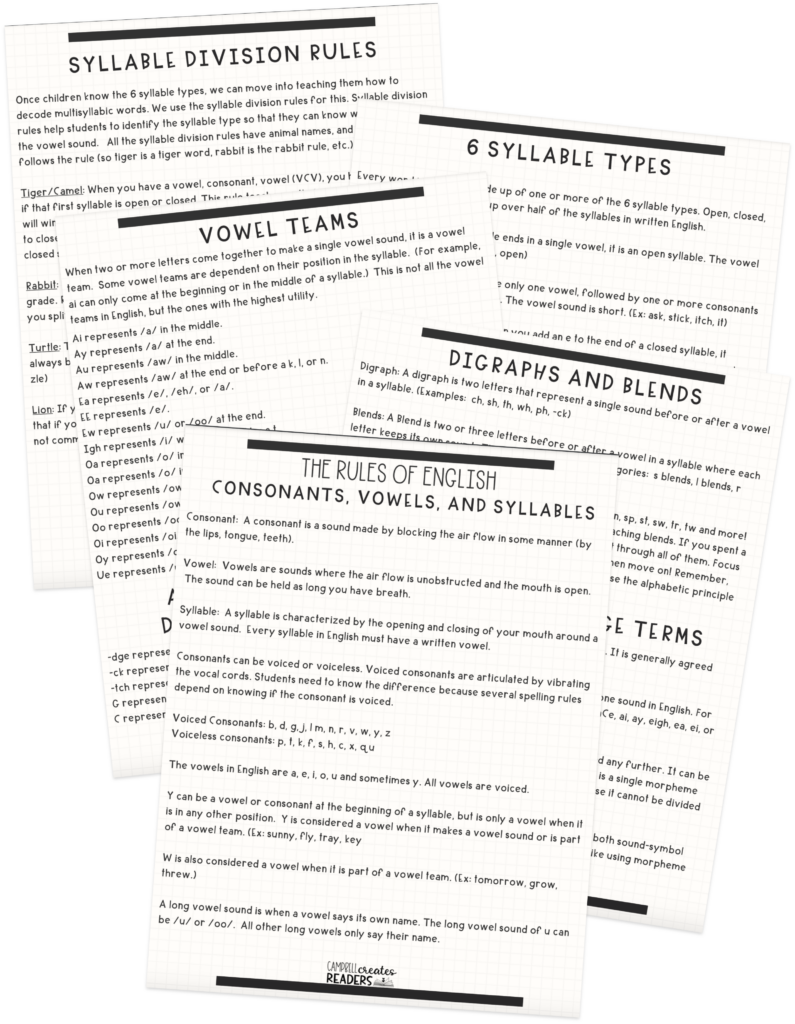
Share This:
There’s a lot of books about the Science of Reading. But which ones are the best for comprehension? Getting started? Small group? Today, I want to answer those questions. I’m sharing my favorite books for specific reasons. I know I have a lot more reading to do around the Science of Reading, but these ones have helped me along my journey.
(Click on any book image to purchase!)
When I say this book changed my understanding of comprehension, I mean it. I love this book so much I own it on Kindle, a physical copy, and the audiobook. I’ve read it multiple times and each time I love it just as much as I did before.
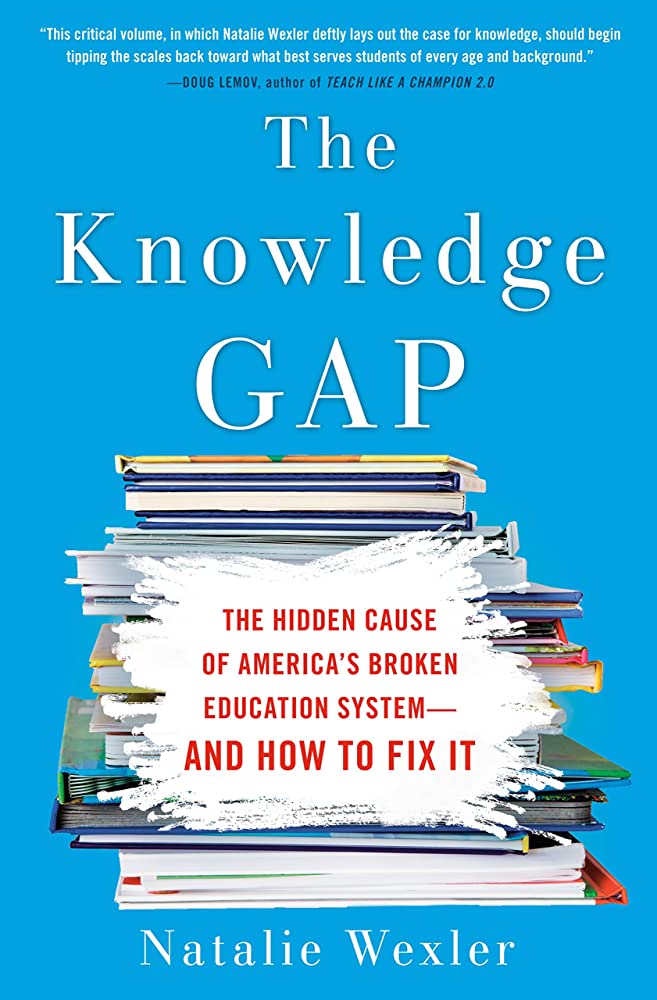
If you were like me, you were taught that in order to teach comprehension, we needed to teach skills. I remember reading Strategies That Work from cover to cover, and then reading the updated version. I thought that the keys to comprehension lay in teaching main idea and supporting details this week, summarizing next week, inferencing the following, and so on.
Natalie Wexler is on a mission to change that notion. While there is some research to support some strategy instruction, there is nothing to support this prolonged lock-step kind of strategy work. Main idea cut and paste tables just aren’t going to cut it (I’m guilty of this one). Instead, we need to teach content. Our focus with comprehension should be building background knowledge and vocabulary. We should teach text structures so children know what they are looking at and provide vocabulary instruction that can be used in multiple contexts. Wexler discusses how we should stay with a topic so that children can expand their understanding. I’ve seen the benefits of this in my own intervention groups.
If you want to learn about comprehension, get this book. I promise it’ll make you think about the way we’ve taught comprehension!
This is the best book I have read that can help teachers to move away from guided reading and towards more targeted small groups. What makes this text even better is that their groups are designed to be 15 minutes or less, and you are not given ivory tower ideas that cannot realistically be completed.
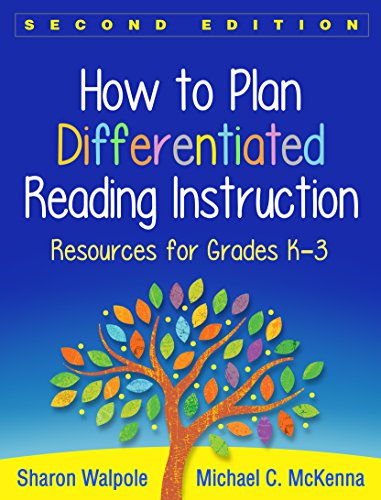
With this book, teachers put their children into 1 of 4 groups: phonological awareness and word recognition, word recognition and fluency, fluency and comprehension, or vocabulary and comprehension. Each group includes only a couple of different activities. For example, if you have students in a group for word recognition and fluency, the tasks are to practice high-frequency words, segmenting and blending, practicing words, and reading decodable texts. We know teaching reading is rocket science, but Walpole and McKenna make it feel like the stars are within reach.
If you buy this book for nothing else, buy it for the resources. Oh. My. Gosh. This book is so full of ready-to-copy resources! I knew that it was a good book before reading it because it had been mentioned time and time again in the Science of Reading community. But I had no idea that they had literally planned out almost all your small groups for you! They have dozens of decodable texts! I really like their decodables because they start with just words with that pattern before giving you sentences or a paragraph to read. It’s the perfect length for a small group. It’s not just decodables though. The resources are too many to count.
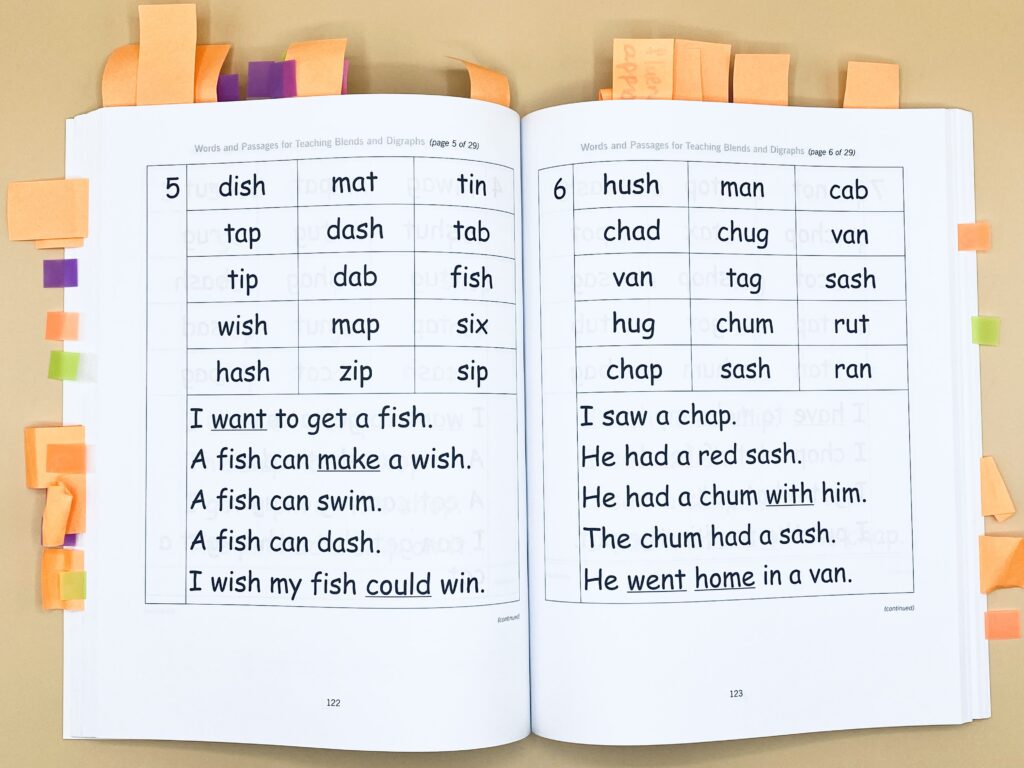
This is the book that had me screaming WHY DID NOBODY TEACH ME THIS again and again. I had always, like many others, laughed about the ludicrousness of the English language. I taught my kids they had to memorize things because “English made no sense.” I would give them trick words like “starve” that had an e on the end because I thought it was a good challenge. Now, thanks to Orton-Gillingham training and this book, I have a MUCH better understanding of how English does make sense and what I can do to support my students. And that we have an e on end of starve because words in English don’t end in i, u, j or v!
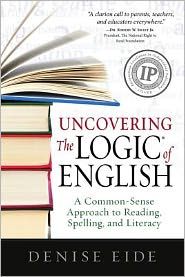
The majority of this book is devoted to helping educators understand the rules of English in a way that makes sense. She includes definitions of key terms such as vowels and consonants. There are chapters on spelling rules, consonant rules, vowel rules, the jobs of magic e, and so much more. If you find yourself wanting a book that can help you make sense of it all, this is the book to go to.
The best thing about Reading for Life is undoubtedly the voice of the author. Lyn Stone does not back down from calling out ineffective practices. For example, when she discusses word shapes, she says “There is not one single study in the entire history of this planet which shows any benefit from doing this. It is mindless busy-work and it detracts from the real business of learning to read and write”(Stone, 2019, p.29). This kind of hilarious rhetoric is interspersed throughout the book, including in chapters that compare some of the huge balanced literacy programs to a cult. Yes, a cult. And honestly? By the end of the chapter you’ll see it too.
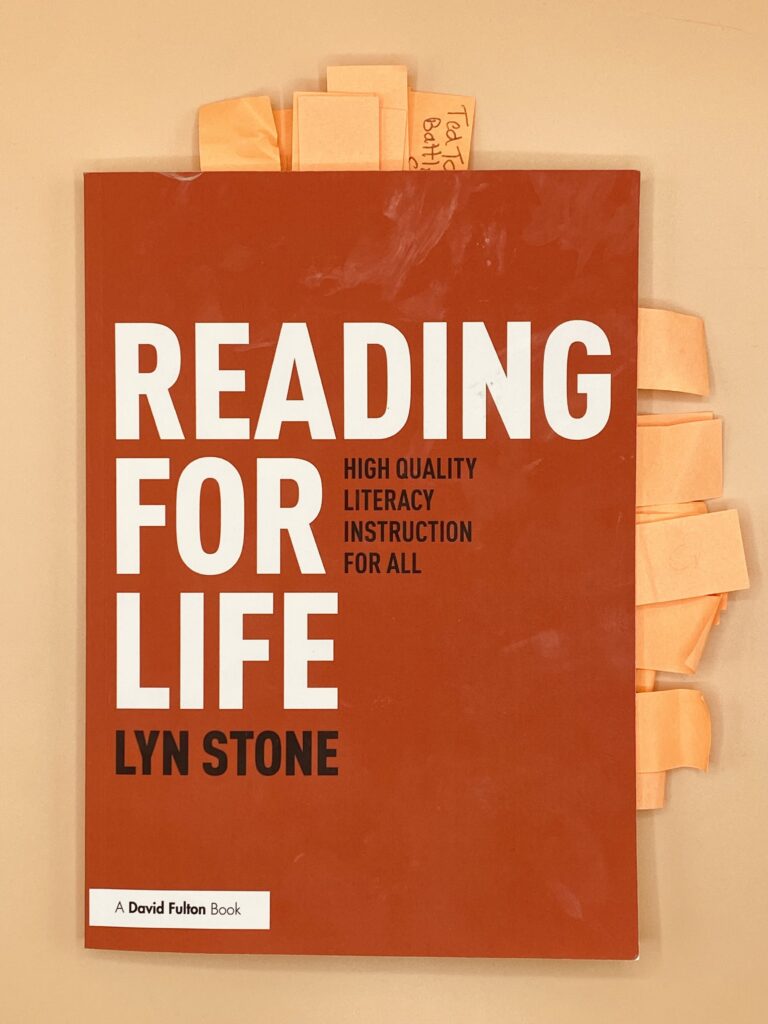
Lyn Stone isn’t just witty: she knows what she is talking about. In Reading for Life, she includes a timeline of the big players in the Reading Wars. I had never seen this kind of work done, and I found it fascinating to read. She starts with Richard Allington and ends with Maryann Wolf, with 14 pages of key players in-between.
I found Lyn Stone so refreshing because she doesn’t just rehash what we’ve seen a thousand times when it comes to structured literacy and the Science of Reading. Instead, she gives us things I’ve seen in no other book, like a review of legislation both in and outside of the United State. If you are fully invested in the Science of Reading, you need this book. If you are still on the fence, wait a while. She’s not making any friends within the balanced literacy community!
If you’re stuck on what books to read, you can’t go wrong with these 5. Each one of them has moved me forward as an educator. I think they can do the same for all of us. What about you? What has been your favorite Science of Reading book? (I’m currently reading The Writing Revolution, so that might have to make it on this list for writing!
*As an Amazon affiliate, I may earn a small commission for purchases made through my links. Your support helps fuel my content creation. Thank you for shopping and discovering amazing new resources with me. Also, I would never share anything that I don’t believe in with every part of me!
Share This:

Savannah Campbell is a K-5 reading specialist. She has taught her entire 12-year teaching career at the school she went to as a child. She holds two master’s degrees in education from the College of William and Mary. Savannah is both Orton-Gillingham and LETRS trained. Her greatest hope in life is to allow all children to live the life they want by helping them to become literate individuals.

Savannah Campbell is a K-5 reading specialist. She has taught her entire 12-year teaching career at the school she went to as a child. She holds two master’s degrees in education from the College of William and Mary. Savannah is both Orton-Gillingham and LETRS trained. Her greatest hope in life is to allow all children to live the life they want by helping them to become literate individuals.
Feeling overwhelmed with all the terminology out there? Want to know the key terms all teachers need to teach phonics? In this FREE Rules of English cheat sheet, you get a 5 page pdf that takes you through the most important terms for understanding English—you’ll learn about digraphs, blends, syllable types, syllable divisions, and move. Grab today and take the stress out of your phonics prep!
